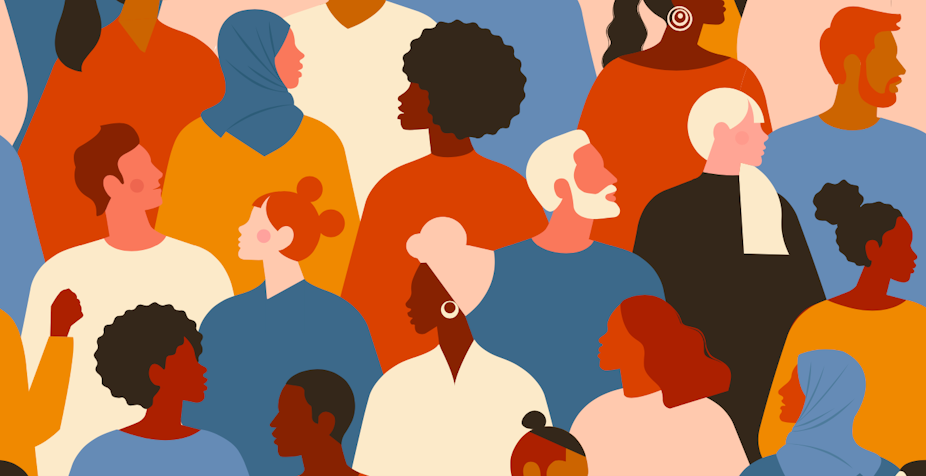As The Conversation has reported, COVID-19 has had a deeply unequal impact on UK society, affecting some communities substantially more than others. The pandemic has also shone a powerful light on the need for policymakers to have access to a wide variety of different types (and sources) of knowledge, to aid their decision-making in both the short and longer terms.
This is just as true now as the UK gradually opens up (paying careful attention to the spread of new variants). But with COVID-19 having affected so many different communities in so many different ways, how do national, regional and local policymakers go about deciding what the priorities for action should be?
This is a key question for the International Public Policy Observatory (IPPO), an ESRC-funded collaboration of universities, thinktanks and The Conversation, established to enable better understanding of policymakers’ needs throughout the UK and to link these demands with the most robust evidence emerging in relation to the pandemic’s many social impacts.
Whether considering the wellbeing of locked-down schoolchildren or the best way to support homeless people, IPPO is paying particular attention to those communities who have been hardest hit by COVID-19 – and who may also not be at the top of the agenda when it comes to recovery strategies, whether because their needs are not well monitored by data (for example, care home residents) or because they escaped the worst of the health impacts (for example, young adults).
That’s why IPPO is hosting a major Action On Inequalities event on Tuesday, June 15, 2021 (10am-1pm BST). We’re bringing together policymakers and researchers, business and civil society from all parts of the UK to look at what’s known – and what now needs to be done – with regard to the many socioeconomic inequalities that have been exacerbated by the pandemic. How can direct and indirect scars best be healed? Where are the priorities for action clear – and where do we urgently need more research?
For example, we know that mortality associated with the pandemic has been much higher in elderly people, poorer groups and ethnic minorities. The economic impact has been unevenly distributed across the population, and the economic fallout is likely to be felt for years.
Low-paid workers were more likely to have jobs in sectors that suspended activities, including hospitality and tourism. Low-income workers were more likely to work in essential services such as nursing, policing, teaching, cleaning, waste removal and as shop assistants – occupations in which people had a higher likelihood of being exposed to COVID-19. The risk of contagion was also elevated by crowded homes, apartment buildings with communal lifts and entrances, and for people who could not work from home and were more reliant on public transport.
Framing policy agendas
IPPO’s Action On Inequalities event will lay a basis for evidence-gathering that is designed not only to improve understanding of these unequal (and interconnected) impacts of the pandemic, but to encourage use of this understanding to help decision makers frame policy agendas. As with all IPPO workstreams, the work starts by identifying policymaker needs and demands rather than being led by curiosity-driven agendas. That is why the ESRC is funding IPPO and its sibling, the Economics Observatory.
The IPPO event will kick off with a plenary session from 10-11am featuring a range of speakers including: Professor Alison Park (the ESRC’s interim Executive chair), Will Hutton (President of the Academy of Social Sciences), Danny Dorling (Halford Mackinder Professor of Geography at the University of Oxford), Talat Yaqoob (Commentator, consultant and equality campaigner) and Hetan Shah (Chief Executive of the British Academy)
This will be followed by seven parallel working groups (11am-12 noon) discussing priority actions in the following areas:
Jobs and precariousness;
Black, Asian and minority ethnic communities;
Gender-sensitive recovery;
How to include disabled voices in recovery planning;
Spatial and regional inequalities;
Recovery needs of young adults; and
Data inequalities, gaps and deficiencies.
To register for the event and select your preferred working group, click on this Eventbrite link.

The social impacts of COVID-19 are vast and far-reaching, particularly on vulnerable and disadvantaged communities. But just as research led to the development of effective vaccines with unprecedented speed, so it can help mitigate the pandemic’s effects on society’s most vulnerable communities – if it reaches policymakers in a clear and timely fashion, helping them to address this social crisis in an evidence-based way. That is IPPO’s challenge; if you’d like to find out more, sign up for our newsletter or follow us on Twitter @covidandsociety.
The Conversation is a partner of IPPO, which is funded by the Economic and Social Research Council (ESRC), the UK’s largest organisation for funding research on economic and social issues. Read more about the ESRC’s Observatories programme here.

